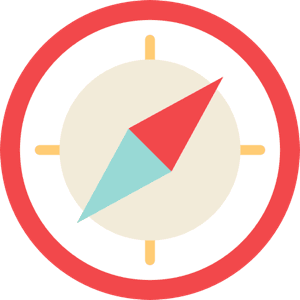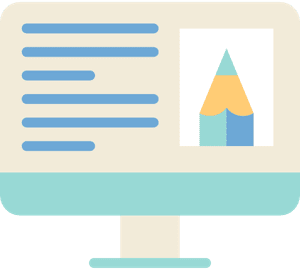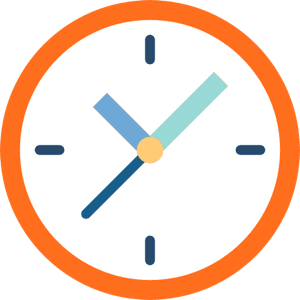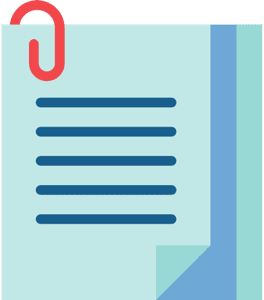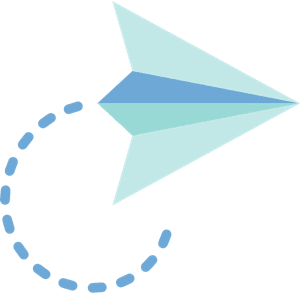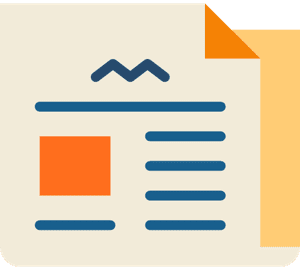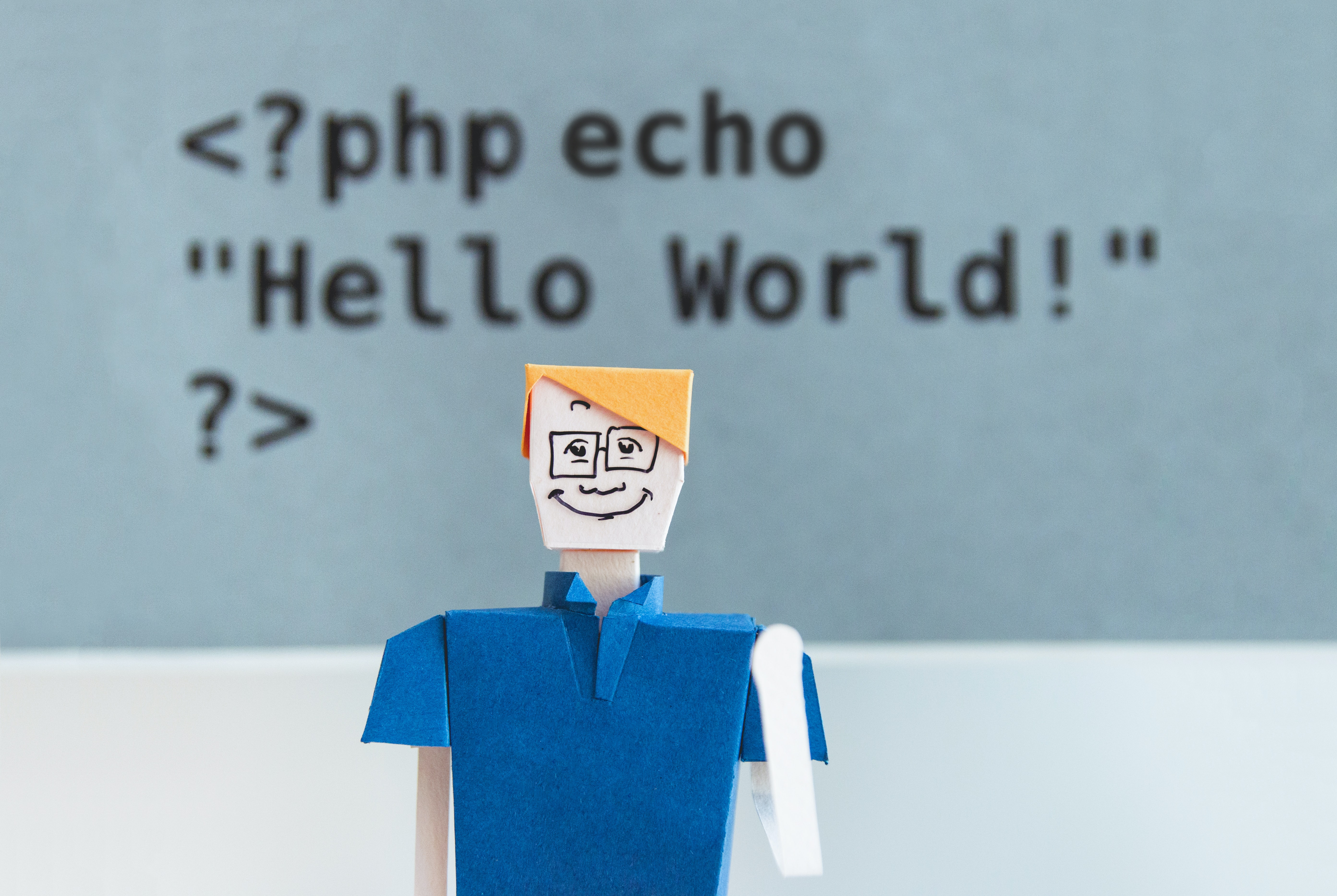Safety Management from the Classroom to the Home, A Conversation with Jeff Patterson

In this interview, we sat down with Jeff Patterson, the CEO and Founder of Gaggle, which is an online safety management system for students. He talks about his start into the EdTech industry as an entrepreneur and explains how this leading platform has helped save student lives.
By the way, this conversation was originally featured on our podcast K12ish, which you can listen to here or wherever you get your podcasts.
Born Entrepreneur
I'm just really interested to learn some more from you about your journey and your background in the role.
So, I was a born entrepreneur. It's just who I am. I can't even describe [it] - I was inevitable to be this. I think I started selling something door to door when I was four. I had a job for one year of my life only.
For one year, I was an investment banker. It wasn't the right match for me, right? I waited till my bonus check cleared, and then I quit, right? I started several mediocre businesses - the worst actual kind - that you don't know that you should give up on, even though you should.
This will go back, way back in the day of K 12. There was a product called HyperStudio. There was a multimedia product, and I built add ons for HyperStudio. That was my first real, specific K12 product, and it did okay.
I happened to be at a conference in Texas - the TCA conference. I happened to just ask a teacher who was walking by "Hey, are you using email with your students?" And she said, "No, no, no, I'd never let my kids have an email account." This is 1997 or so.
I said, "Well, why? Because I'm using email to collaborate with people around the world to build these products that I'm trying to bring to you." And she said, "Well, the district would be too afraid of who are the kids going to talk to, and what are they going to talk about? How do we keep it safe?"
Because I was young and naive and hopeful, I said, "Well, I can solve those problems." So, the very first version of Gaggle was just a student email. Our tagline was 'Hotmail, but where the teachers are in control.' So, that was back in 1999 when I launched it, right? [I] didn't know anything I was doing, even if it's just me and one little mini-tower server.
I tried to raise venture capital funding, and no one would trust me. I basically - I wasn't trustworthy. Which I'm so grateful for because I was stubborn, and I just started building the company anyway.
So, today we're almost 110 employees. We're profitable. We're growing very consistently every year and helping more kids in schools. I feel blessed that I don't have a Board of Directors - any good idea, crazy or not, we're just going to do [it].
Crazy Ideas That Worked
What's been one of the craziest ideas in the last year that you've put into play?
Like a real crazy [idea] - this is not the last year - but, Anna, one year for ISTE - because we're called Gaggle like geese - I was going to have baby geese shipped to us at our booth. People [said], "Oh, you can't do that, Jeff!" [I said], "Oh, yeah, watch me."
I found a place that would ship me geese eggs and time them to hatch right before they arrived. [People said], "what are you gonna do without mappers?" I found a farmer to take him on the way home - this is I think in New Orleans. I get this close to having baby geese at an ISTE conference, so that's crazy.
This last year, something crazy that I've done?... Well, this whole year has been crazy. I will tell you something, it's new and I'm very proud of and excited about. For years, I've known that when we identify students in crisis, there are oftentimes not the resources to help the kids.
School counselors and the few psychologists they have, they're overwhelmed. The psychologists are not a clinical psychologist that can do therapy for kids. So, we've just launched a Gaggle Therapy Solution.
So, when you have a kid who's a student who's suicidal, who's cutting, who's maybe lost a parent - you can assign them a therapist, and help them deal with these heavy issues dealing with this. How can we expect kids to learn History and Math [with the] heavy stuff they're dealing with?
We expect students to just sit still in class, or come to school ready to learn, but they have this whole host of baggage they're oftentimes bringing with them there.
The movement towards Social [and] Emotional Learning, I think is a great start. I don't think we're there yet. I think we're gonna have to realize - I hate saying this, people are gonna like this - but focus less on academics.
If people aren't in the right headspace, they're not gonna learn. If people don't want to learn, they're not gonna learn, and that certainly applies to kids.
Misconceptions about Social and Emotional Learning
What do you think the main thing is that people get wrong about Social and Emotional Learning?
I don't even know what it means anymore... I know what I wish people came to me with - when they start as employees or my children - how do I self evaluate? How do I self regulate? How do I pull back from being angry? How do I understand other people? How do I resolve conflict? How do I put myself in somebody else's shoes? - Those are the types of things that I think of?
Transformative Leadership for Social and Emotional Learning
How do you think lessons from Social and Emotional Learning are impacting school leadership or just leadership in general?
The educators I know they're doing their best just [to] keep it together. There's no clear direction, no idea of what is success. What they should be doing, what they can't be doing. Everything is political.
We don't even know what to believe anymore. Anna, I've stopped reading the news, or watching the news, because I don't have time to ascertain, "what is true and what is not." Even the trusted news sources I know, it's all - everybody's got their angle they're pushing.
So, I just feel for anybody in a leadership role. They're just trying to navigate the best they can. I think it's going to be 6 months from now that we're going to say, "Okay, what are the lessons learned?"
A lot of its just empathy at the end of the day.
Yeah, I think it's being able to be understanding and forgiving of others. I wish we had more of that. Look, the push towards Remote Learning and Digital Learning, we'll have it forcing our schools into modernizing very quickly. There's good and bad with that.
We're not going to go back to where we were - which is probably a good thing - but it means it's gonna be a rough ride getting to where we're going.
LinkedIn Growth Rate
Beyond just being the CEO of Gaggle, you're a LinkedIn powerhouse, what attracted you to the platform?
You can be elegant - I'm skeptical of everything and critical of everything - so when it first came on scene, [I was] like, "what do I need this thing for?" I discovered it as a great way to connect with people, and see a little bit of [their] background. The personal connections we make are so important.
My journey to helping people on LinkedIn - that probably started about three years ago - and people would email me periodically, or contact me on LinkedIn, and say, "Hey, Jeff, I'm out of work, I'm looking for a job, where would you recommend, do you know anybody" - or they'd say, "do you know anybody who'd be great at this role?"
I started to realize I've got all these people who are looking for work. So, it started with me posting: here are some great folks in EdTech who are looking for the next opportunity. It started with maybe 10 [people], and then it just kept growing to the point of - I think one time last December, I probably have - 200, 300 people that we're looking [for jobs].
I just keep adding them, and this time around - I usually do people looking, then I do jobs - there's not a lot of jobs. There's a lot of people looking, so I'm just posting jobs. I think my posts since March are 21 posts now.
You've built this community of Education Technology professionals.
It's been great to see! I think I'm well over 10,000 connections at this point - and I don't accept every connection. I get lots of salespeople trying to sell me something, but it's people in EdTech, and people that are related to what we do, and share our passions.
I know there's a lot of struggle and pain right now. If you're out of work you're not sure: What's my value? What do I do next?
How do I take that next step forward? - and just knowing that "oh, there's a job there, works for me." I can do something and feel good about it.
What's been one of your most positive experiences that have come out of your presence on LinkedIn?
So, this goes back a couple of years [ago] - it's been happening more and more lately. I'll be at a conference like ERDI, and I had this woman come up to me - I think her name was Jody, I can't remember the last name at the moment - and she said, "Jeff, I just want to thank you! I was out of work, I couldn't find anything, and you put me on that list just helped me. I found this job."
I think she was working at ERDI at the time. So, it's just nice when I get those messages - like someone who said, "Jeff, you inspired me, or you helped me when I was at a tough point." It's great to see and hear.
Networking Results on LinkedIn
It's evolved into this true networking platform. It's expanded beyond just business. It's becoming a place for educators to operate as well. Have you seen that?
I have! It's been great to see more educators get on the platform, then posting and sharing what's going on in their districts. I'm encouraged by that.
I think it's my complaints about growing up - don't get me wrong. I was super critical - but, overall, I'm glad it's there. I do a "happiness journal" every morning where I write down things I'm grateful for, and a few times I've written down "I'm happy about LinkedIn. I'm happy it exists."
What advice would you give to someone who's looking to grow on the platform, especially from an education perspective?
Make it about other people, it's not about yourself. Build up others. I'm happiest when I get to post about a friend of mine whose company is doing something great, or they took a new job, or they're making a difference. Making it about other people - building up others.
You probably aren't aware of something else that I do! So, there's LinkedIn - that's the virtual world, but there's a couple of organizations in EdTech. One is called the D.O.L.S.
A great organization that has been around for 25 years. D.O.L.S. stands for the "Dirty Old Ladies of Software." I cannot be a member of the D.O.L.S. The D.O.L.S. have these dinners at ISTE and other big conferences.
So, a bunch of us guys decided we formed the D.O.G.S. - the "Dirty Old Guys of Software.” Now, the D.O.G.S. also is doing events at ISTE. We're not that formal.
If you're looking for another way to network with an EdTech, the D.O.L.S or the D.O.G.S are some great organizations.
Education Thought Leader
What does it mean to be a leader in education?
Look, I don't want to put myself on the same pedestal as a school superintendent, deputy superintendent, cabinet member, or even a teacher. They're doing a labor of love and a sacrifice that's way beyond what I'm doing. So, I can only speak to what it means to be an EdTech leader.
This is why we're attracted to the industry, right? We like doing something that has value - beyond just making money. We like knowing we're doing good in the world. So, for me knowing that I'm doing good in the world, but also that I'm helping other people grow and mentoring others - that's what it means to be a leader.
That means being patient and curious - not always my best traits. In really learning to help inspire, and then make good, strategic decisions that help us serve for the long haul. There's a cost that comes when products come and go quickly.
A free product is great for a year and then it's gone - you're, probably, doing a disservice to the schools, because getting teachers trained on something new and getting it implemented - needs to be reliable. We've got a responsibility as EdTech leaders to make sure we're doing right by our customers.
I'm grateful that I get to be a part of this industry. I get to make a difference in the lives of students. This last school year, we helped save 927 student lives.
Those were our most serious possible student situations where we knew that the student was going to kill themselves, or someone else - they had the means and the motive. It was all there - and it was like within the next 24 hours.
So, the fact that we can make a difference in those lives means so much to me. I know on all the other things that we notify districts about - it's what I call 'lifetimes lost.' There are so many students out there that are just in pain, they're depressed, they're self-harming, they're cutting.
If you're going through that trauma at this age, it's a lifetime loss, because you're not going to be [able] to develop all the skills you need to become a functioning adult. You're stunting your life. So, I just want to emphasize that we need to focus on those kids, and what's going on in their heads.

